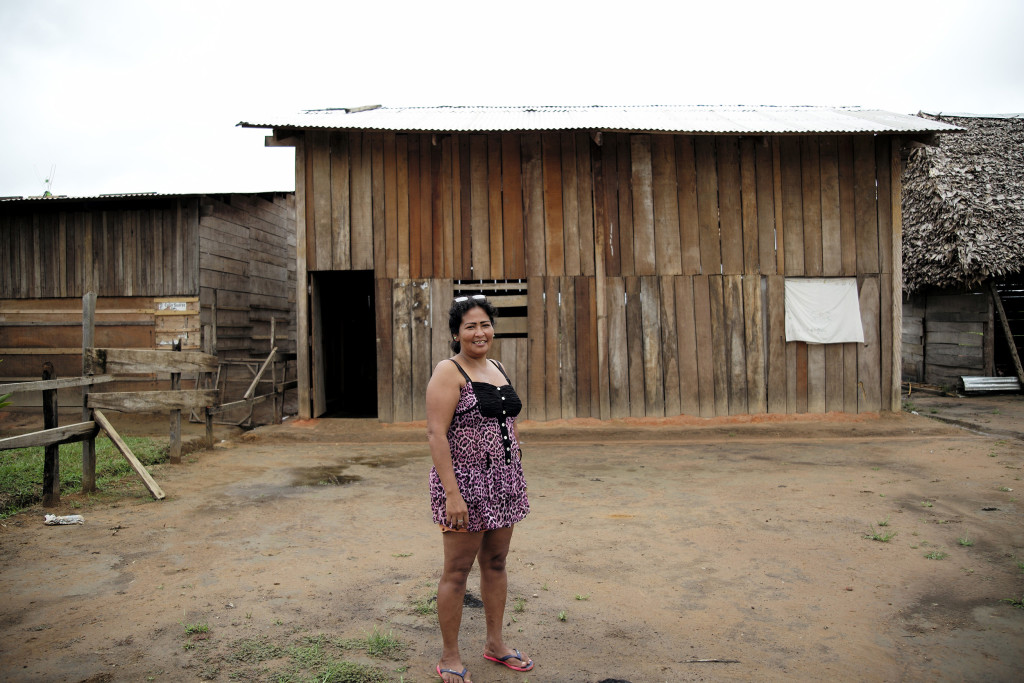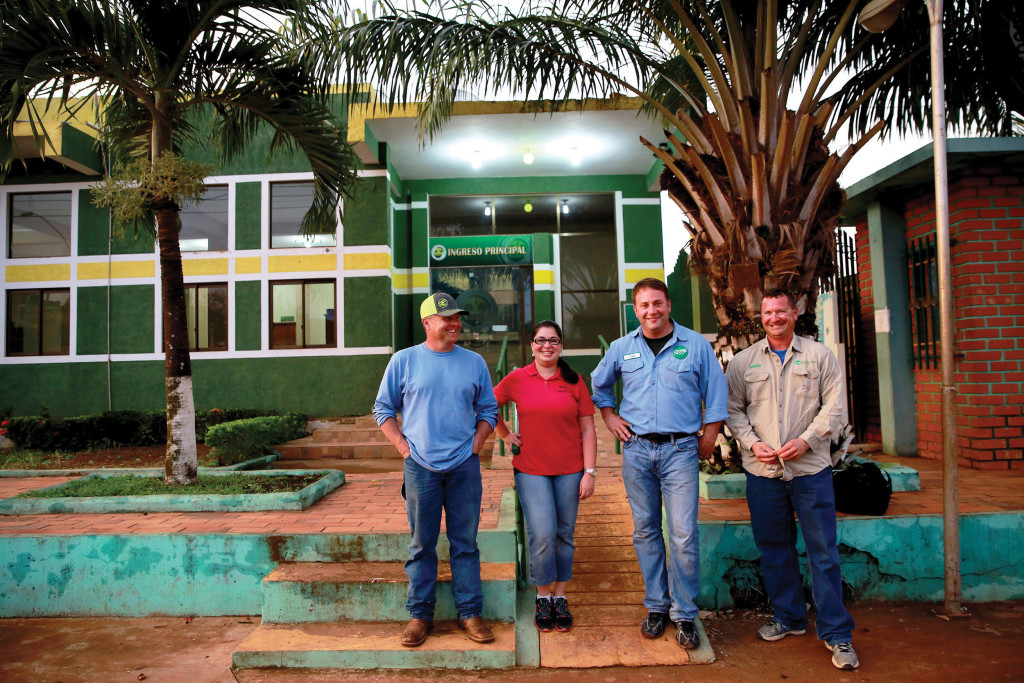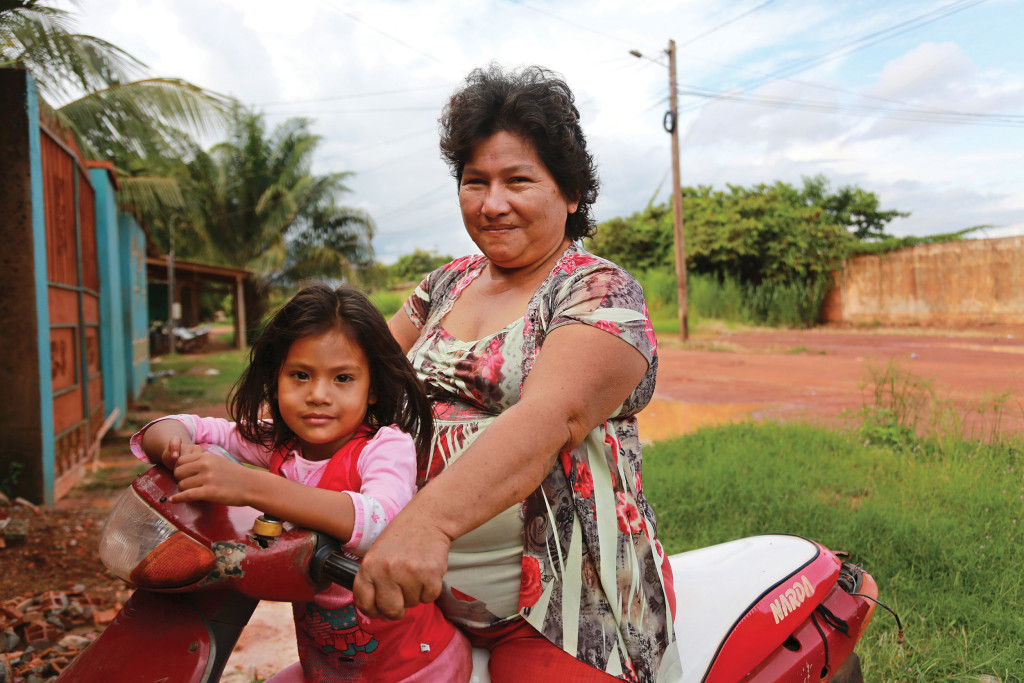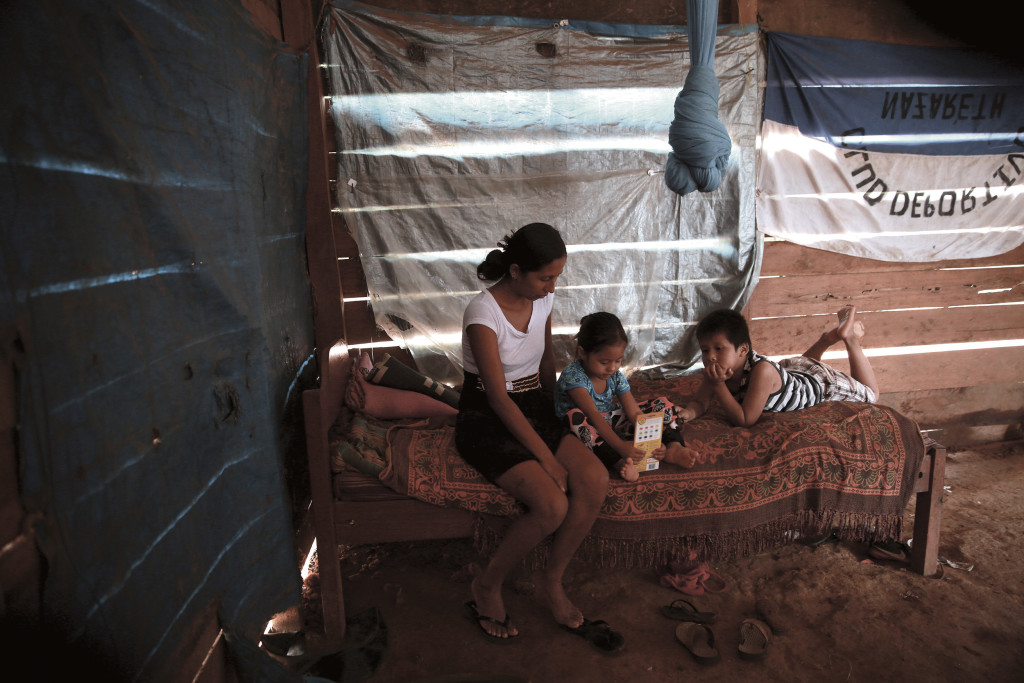Day 1

It can be scary walking home at night in a lot of places, but few of us have to worry about men with machetes.
Flora does. And it’s one of the reasons she wants electricity—so there can be streetlights.
Flora is in her 50s and has 10 children, ages 10 to 31, and 20 grandchildren. She lives in Dos de Junio, a community in the Beni district of northern Bolivia.
For Flora, safety is clearly on her mind. Maybe it’s because she has nine daughters; five of them still live with her in a small house. And there is no husband. She moved to Dos de Junio two years ago because the Bolivian government offered people free land. Electricity will come, she was told.
She moved her family, cleared the land, and built her house, which is not much more than a large room with a thin wooden wall separating the bedroom from the main room. Hammocks are hung in a few places, both inside and out. Dented pots and pans are stacked on a table outside, and water is drawn by hand from a well that is about 50 feet deep.
I know Flora’s story. I’ve learned how women and children benefit the most from light, and I’ve interviewed community leaders who want streetlights to discourage criminal activity. I’ve written about it, and I’ve talked about it. But I’ve never heard it directly from a woman who lives it.
When asked how electricity will change her life, Flora didn’t hesitate. She drove the point home many times. With no lights, the motorbike taxis won’t come into her community at night because they are afraid, she says. So she walks.
Day 2

“When will you come to Oklahoma to inspire our volunteers with stories so they will come here?” asked Wade Hurst of the Oklahoma Association of Electric Cooperatives (statewide).
Me? Inspire them?
During the past few years, I’ve spent time with co-op volunteers in Haiti, in the U.S., and now in Bolivia. I’ve gotten to know them and have developed many friendships. I’ve helped them tell their stories, and I’ve watched people’s emotions as they listen. I’m always proud to be around them.
So when Hurst, a safety and loss control instructor, posed this question, I was dumbstruck.
I sat next to him at dinner after the long journey from La Paz to Riberalta. He’d spent the day with his colleague Anna Politano, editor of Oklahoma Living magazine, which is published by the statewide association; Roger Berhorst, a journeyman lineman at Three Rivers Electric Cooperative in Linn, Mo.; and Craig Moeller, assistant director of risk management and training from the Association of Missouri Electric Cooperatives (statewide). They’d visited the towns of Dos de Junio and El Torito to scope out the work needed to bring power there.
Later this year, a team of 14 linemen-volunteers from Oklahoma and Missouri, coordinated by the NRECA International Foundation, will combine efforts to bring electricity to 260 homes.
I asked Hurst the usual questions and listened to the very familiar answers I’ve heard from many volunteers. They all want to help in any way they can.
“Linemen are a very giving bunch,” Hurst says.
And just like the others who are as humble as they are generous, I don’t think Hurst fully comprehends the impact he and his team will have on the women and children in these communities—and how he will inspire his own community when he returns home.
They all have a job to do when they get home to Missouri and Oklahoma, and I will probably help them tell the stories of why co-ops and linemen in their home states should band together to help these women and children.
But the inspiration will not come from me.
Day 3

It happened so fast I didn’t have time to worry: I found myself sitting on a motorcycle driven by Narda, a doting grandmother and community activist who doesn’t do well with authority.
We were riding the streets of Riberalta to her home 15 minutes away. Her granddaughter Nardita, 4, was perched in front, singing songs that didn’t do anything to calm my nerves.
Behind me on another motorcycle was the reason I found myself in this predicament: Noah Friedman- Rudovsky. A freelance photojournalist who has lived in Bolivia for more than a decade, Noah had called his old friend Narda to talk to us.
Narda was about 16 when power first came on in Riberalta. When we walked into her home, natural light poured in through the back, revealing a dirt floor, an indoor well, a simple kitchen with a fridge, and a chicken that roamed freely through the house.
Nardita sat on my lap coloring in my notebook while her grandmother remembered a much smaller Riberalta. A much simpler life. Her father was a mechanic with Cooperativa Electrica Riberalta, and she would run home each day to be there when the electricity was turned on between 6 p.m. and 10 p.m.
Today, Narda has electricity 24/7, but she has to work hard to make ends meet. An illness forced her to quit a job about 10 years ago, so she knits clothes and produces artwork to earn money. Her daughter runs a meat-packing business to support the family.
Narda is a strong voice in the community, and she fights for residents’ rights. When I asked how she thinks Nardita’s future might be different from hers, her tough exterior cracked a little and she fought back tears. She wants her outspoken namesake to have a strong voice—but not her hard life.
Narda fights for her community. But listening to her story and looking at her surroundings, I had to wonder, who fights for her?
Day 4

As our truck stopped outside a small wooden house on a muddy dirt road in Dos de Junio, a young woman walked toward us with a young boy and a girl close by. I looked around, assessed my surroundings, and attempted to predict the story that awaited me.
Isabel, 25, agreed to talk with us, but she seemed to wish she had more time to clean up her home and put fresh clothes on.
She’s a nurse living on her own with her two children, Angel, 6, and Luz, 3. As she patiently answered my questions, her story emerged.
Isabel used to live with her mother in Riberalta, where she still works. Her mother abused her, so as soon as she could, she left. That was two years ago. She built a house at the far edge of this community. It has no electricity, and she told us how the mosquitos attack them at nightfall.
We came back later to capture her life after dark. I watched Isabel expertly build a cooking fire against the wall of her house and light a candle so her children could read. It was hot, and the air was smoky from the fire. I had to step outside a few times that night.
The house has two beds, no privacy walls, a small cupboard to store belongings, and pots and pans stacked in another corner.
When she can, Isabel brings medicine from the hospital to her community. She wishes for electricity because it’s hard to give injections by candlelight. And with streetlights, motorbike taxis would be able to avoid bumps on the road when taking the sick to hospitals.
The road was pitch black when we left Isabel and her children. They were heading to the hospital to get a free meal, she told us. I wished there were a different story to tell.
Photo Gallery
This story was originally published in RE Magazine.
